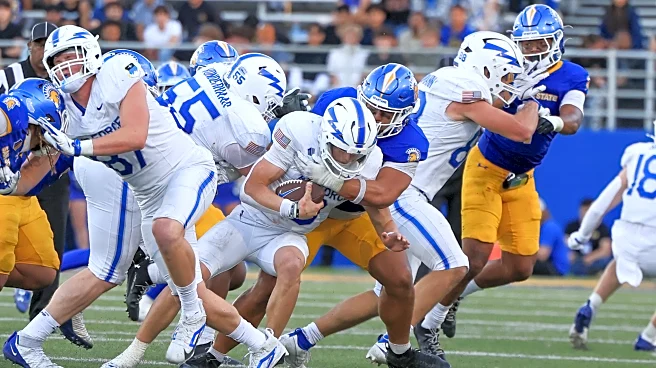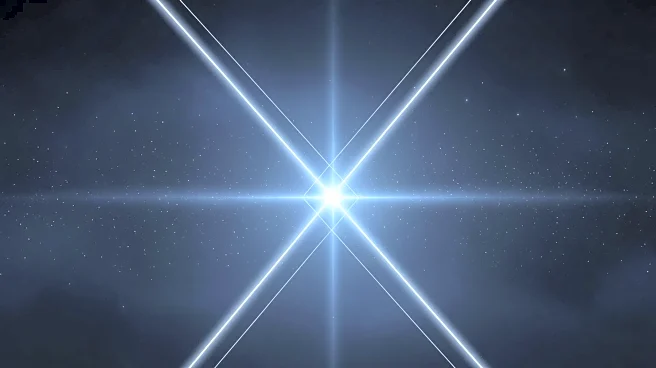With what Air Force (3-6, 2-4 MW) can do on the ground, San Jose State (3-6, 2-3 MW) can do in the air, but on this night, it was the no-frills simplicity of a devastating run attack that earned a 26-16
win for the Falcons.
Opening the game on a half-shadowed field, the San Jose State defense pitched back-to-back three-and-outs, as the Spartan offense quickly and methodically went to work.
SJS QB Walker Eget led a seven-play drive leading to a 31-yard Denis Lynch field-goal until the Spartans’ proceeding series saw Eget scramble and go down with a leg injury; temporarily leaving the game.
And just like that, the game shifted.
“When Walker got hurt, we sputtered,” said head coach Ken Niumatalolo. “It took away some of his mobility and you can see he wasn’t able to push off on some of his deep throws.”
Eget with 334 yards passing (27-42) threw two interceptions of the three turnovers that doomed the Spartans.
And on cue, Air Force found their running legs.
The Falcon no-nonsense offense punctuated a 15-play series with dual-threat sophomore QB Liam Szarka’s three-yard dive into the end zone to open the second-quarter scoring.
Air Force had already clipped the century-mark rushing; finishing the first-half with 144 yards on the ground, as expected. The Falcons put down 261 total rush yards of 302 total yards.
With Eget returning, the Falcons dropping eight into coverage forced Eget’s first and second interception in six games, nullifying promising Spartan drives.
San Jose’s offense remained uncharacteristically stuck in neutral for the remainder of the half.
“On film, it wasn’t the exact thing I was thinking,” said Eget on the two interceptions. “Basically, they’re a tough team and they’re smart.”
With each Spartan gift, including a safety that shouldn’t have been, Szarka quickly took advantage; leading the Falcons to two first-half touchdown runs, as the game moved quickly leaving Air Force up 16-3 at the half.
The only thing slowing the Falcon offense in the first-half were three consecutive penalties on their fifth drive forcing their third punt.
Kyri Shoels high-point 40-yard catch to Air Force’s 21 set up a second Spartan field-goal to open the second-half. The revolving kicker door saw Mathias Brown serve up the 29-yarder for three.
“I’m grateful they both made fields goals,” said Niumatalolo on using two kickers. “But not that we had to settle for field goals.”
Shoels finished with 93 yards receiving on six catches, while Spartan cohort Leland Smith stacked another 100-yard receiving game; finishing with 144 yards receiving on nine catches.
The nation’s leading receiving in Danny Scudero targeted 11 times had five receptions and 41 yards.
Promising at least for San Jose was 10-plays, 69-yards to create some much-needed momentum, though only “ending” with field goals.
Even after the Spartans stopped the Falcons’ opening second-half drive, Air Force still ground down seven minutes and before 13,637 knew it at CEFCU Stadium, it was the start of the fourth quarter.
With SJSU’s 318 total yards to Air Force’s 192 total yards opening the fourth quarter, it was Spartan running back Steven Chavez-Soto’s eight-yard TD jaunt on fourth-down putting San Jose State down by three.
In Air Force’s next series, Szarka daggered in two passes keeping the Spartans even more off-balance. Szarka completing a 12-yard touchdown pass to Quin Smith also took five more minutes off the clock.
Though the Spartans were able to answer with Lynch’s second field goal, Air Force befittingly ended the game with an 11-play, 60 yard field-goal drive that took over five minutes, as Air Force essentially ran out the clock.
All said, San Jose still has a glimmer of a bowl hope.
As Eget and Niumatolo continue to echo after every game win-or-lose, the Spartans are just looking to go 1-0 each week.
Next week, San Jose State faces Nevada at Reno, as the grind continues.









